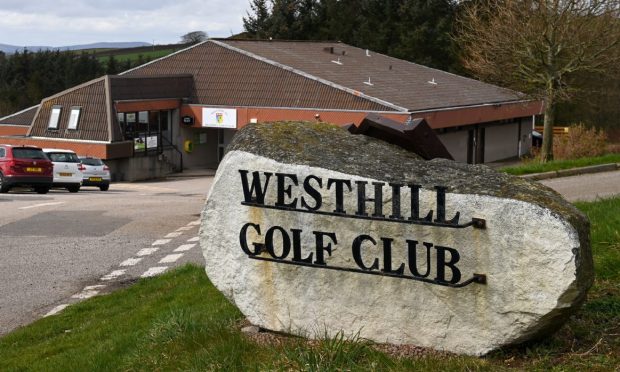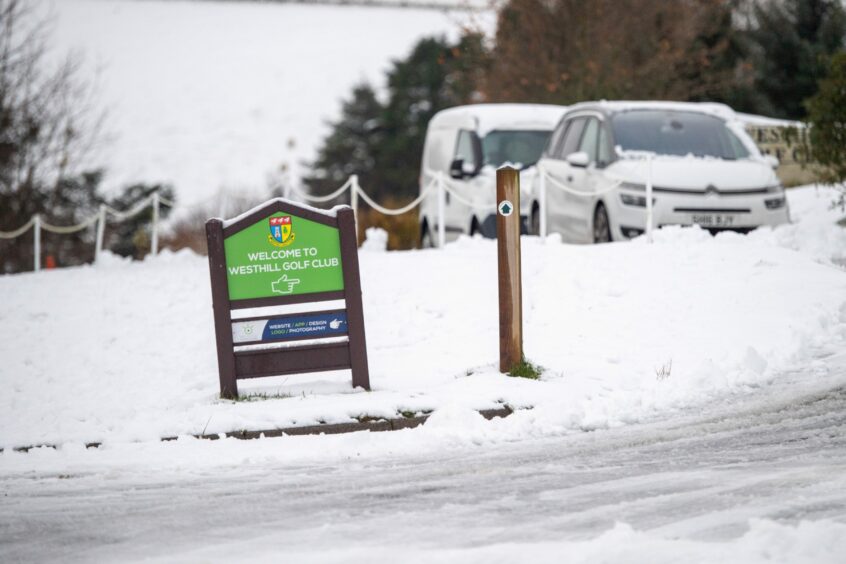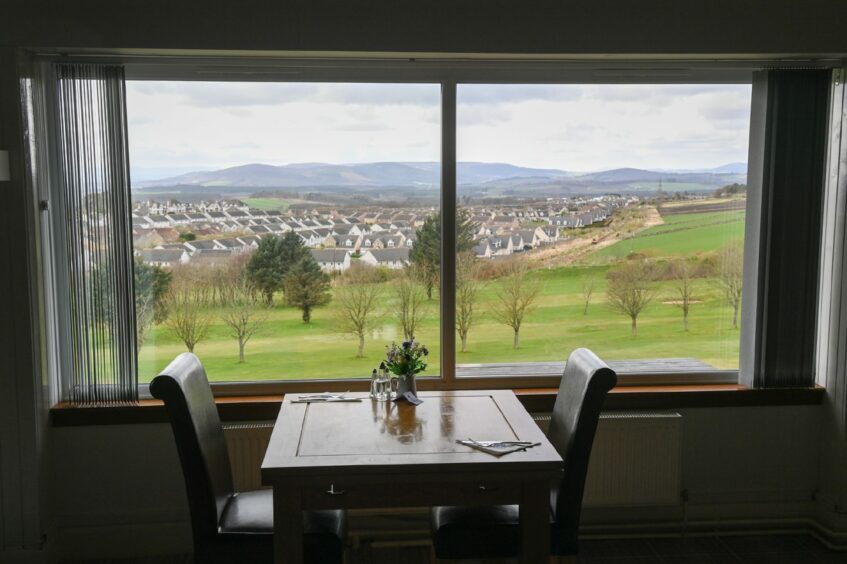Westhill Golf Club members were called to a meeting on Tuesday night to take action over “a severe and urgent cash flow issue”.
Patrons of the Aberdeenshire club were asked to attend a clubhouse summit as chiefs looked to plot the way forward amid an “unsustainable” situation, which means “without an injection of cash in the short term, the club will be unable to meet its financial obligations.”
In correspondence sent to members and seen by The Press and Journal ahead of the special general meeting, Westhill ladies’ captain Karen Templeton told members the club’s plight is the result of several setbacks in the years since the Covid golf boom.
What factors have hit Westhill Golf Club finances?
Templeton wrote how unexpected machinery costs last winter put “immense pressure” on the club financially, with Westhill’s bank refusing to increase their £70,000 overdraft facility at the time.
The struggles have continued into this summer, despite what has been described as a “robust system of budgetary oversight”, a focus on reducing expenditure and what had been hopes for a “small” budgetary surplus this year.
“Declining membership numbers and a reduction in corporate membership” meant income from those sources “was £30,000 less than expected” against Westhill’s budget for 2024.
“Reduced income from Open competitions and visitor green fees” have also made “meeting the budget extremely difficult”, according to Templeton.
Templeton also revealed: “Over the past few years, we have relied on short term
soft loans from members and an overdraft facility from the bank to keep us going over the winter months.
“That is only pushing the problem further down the line. Loans always have to be repaid.”
‘Short-term’ cash flow fix needed, plus capital for course works
On the cash flow front, the document sent to Westhill members ahead of Tuesday’s meeting said the club are on course to break their £70k overdraft limit “very shortly” as result of these factors – with no prospect of an overdraft limit increase.
Templeton told patrons “a short-term solution to improve our position with the bank” is needed, but the impact of annual bank charges and interest payments – currently £6,000 per year – also makes reducing or paying off their present overdraft a matter of some urgency.
A further financial headache, according to Templeton, is the need for capital to make course improvements.
These include work to counter increasing rainfall (following failed attempts to obtain gran funding), to meet Scottish Water requirements around water course contamination prevention, and upgrades to clubhouse and greenkeeper facilities.
FOUR options presented to Westhill members
“Doing nothing is not an option”, Templeton told Westhill members ahead of the meeting on Tuesday, where they were presented with four options aimed at addressing the club’s financial situation.
Templeton added: “We have to find a way to, at least, deal with the shortfall in
cash flow immediately before we get to a stage of breaching the overdraft limit.”
Members were told their approval was needed to take any of the options forward – “either singly or in combination”.
The first option was a debenture scheme where members lend money to the club for a minimum period of two years before they can withdraw it again. For each £100 invested, members would receive a £5 reduction to their annual fees.
Option two was the sale of the three-bedroom Stewards Cottage owned by the club and currently rented out for around £900-per-month (minus fees), with “initial investigations” suggesting Westhill could raise a lump net figure of £200,000 from this move.
The third option presented was a £160 levy for each regular member (with a different rate for other classes of membership), which could, in theory, raise £40,000 “to start to put the club’s finances back on to a steady footing”.
Option four was the sale of land to Rubislaw Estates Limited, who currently hold the pre-emption rights on the golf course, for housing on Westhill’s current sixth tee and at the side of the 10th tee.
But “discussions with the company indicate that no money would be paid until planning permission was approved and the plot(s) sold on to a developer,” Templeton said.
Ladies’ captain Templeton told Westhill members there were “positive and negative aspects” to each option, adding: “Of these four options, the sale of plots of land would generate money for investment in the future, but would not address the immediate cash flow issue.
“A debenture (being voluntary) avoids some of the risks of a levy, but has other issues.
Eventually that money would have to be repaid and it is not possible to forecast how much would be raised.
“Sale of the Stewards Cottage would generate a substantial amount of money, some of which could be used to correct the position at the bank and the remainder held to be drawn upon for capital investment. It would mean parting with an asset and may impact on the club’s ability to get help from the bank in the future.
“A levy would raise money in the very short term and would allow us to deal with the
immediate cash flow issue. We have to be mindful of the potential impact on membership numbers and the risk of non-compliance.”
It is as yet unclear which of the range of options was chosen by Westhill patrons at Tuesday night’s summit, but a Westhill Golf Club spokeperson told The Press and Journal on Wednesday: “There are several factors which have led to the financial issues that the club is now facing. One of the biggest factors has been the increase in cost of living which has had a negative effect on all businesses in the past year specifically.
“This has also had a knock-on effect on the membership this year, which has led to our current financial hardship.
“The meeting last night was well attended, and members voted on a few options to put the club in a better financial situation in both the short and longer term.”



Conversation